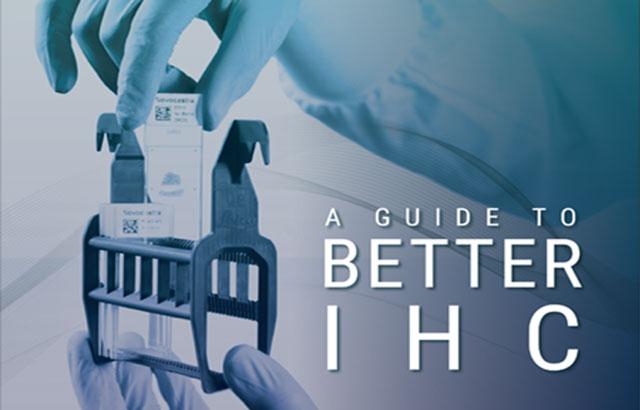
IHC Workflow Optimization Toolkit

Every IHC laboratory is unique and given the daily challenges the laboratory faces, no two days are alike and there is no “perfect” workflow that can anticipate sudden workflow changes, both planned and unplanned. Therefore, the ideal workflow is likely not one that is concrete in nature but adaptable to accommodate the changing needs and challenges laboratories face.
This guide aims to assist you in better understanding your current IHC process by identifying critical points in your current workflow. The tools provided in this guide will help you measure and improve the workflow at these critical points to help you determine the optimal workflow for your lab not only for today, but how to assess and adapt to future changes for your future workflow as well.
This toolkit will provide you the following items to assist you with your workflow assessment:
- Workflow Guide Instructions
- Current High-Level Workflow Assessment Questions
- Current Workflow Data Spreadsheet Templates
- Equipment Strengths/Weaknesses Assessment
- Manual vs Automated IHC Assessment
- Identifying Waste Checklist
- Workflow Analysis Tools with Guides & Templates
- Root cause analysis
- Process mapping
- Pareto charts
- Spaghetti diagrams
- Impact matrix
- Customized Tools
- Common workflow analysis scenarios
About the presenter

Ashley Troutman has been involved in Laboratory Medicine for more than 20 years in clinical, research and administrative capacities. He has worked in facilities of all sizes, from small community hospitals and private labs to large academic medical centers and corporate reference labs. He has extensive experience in laboratory science and management, specifically in anatomic pathology and immunohistochemistry. He has managed routine histology operations and has been part of the team to aid researchers in designing experiments using histologic techniques. These roles have allowed Ashley to lead work process implementation teams that saw success in scientific innovation as well as improving laboratory efficiency through areas of waste/cost reduction, process improvement and safety.
Related Content
Leica Biosystems Knowledge Pathway content is subject to the Leica Biosystems website terms of use, available at: Legal Notice. The content, including webinars, training presentations and related materials is intended to provide general information regarding particular subjects of interest to health care professionals and is not intended to be, and should not be construed as, medical, regulatory or legal advice. The views and opinions expressed in any third-party content reflect the personal views and opinions of the speaker(s)/author(s) and do not necessarily represent or reflect the views or opinions of Leica Biosystems, its employees or agents. Any links contained in the content which provides access to third party resources or content is provided for convenience only.
For the use of any product, the applicable product documentation, including information guides, inserts and operation manuals should be consulted.
Copyright © 2025 Leica Biosystems division of Leica Microsystems, Inc. and its Leica Biosystems affiliates. All rights reserved. LEICA and the Leica Logo are registered trademarks of Leica Microsystems IR GmbH.



